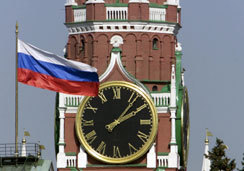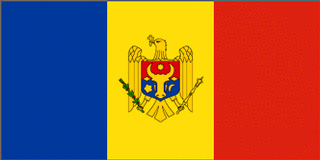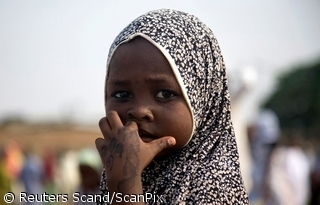EASTERN EUROPE AND KAZAKHSTAN: NEW HORIZONS OF COOPERATION
Published:
1 November 2003 y., Saturday
In 2004 ten of Eastern and Central European countries (ECE) will enter the European Union; it will be record quantity of new members for all the EU history.
Positive and evident experience of Single Europe members urges on potential members to meet a number of necessary requirements for of the Western-European investments inflow and therefore possible increase of living standards at present or in prospects.
The entering of these countries to the European Union can benefit not only them, but also traditional partners of Central and Eastern Europe such as Kazakhstan. Now available investments inflow from the EU members and recent the Brussels grants allowed to recover the some economic sectors and to increase the export level with other states, including Kazakhstan.
For example, the purchase by German “Volkswagen” rather unprofitable in the beginning of 1990s automobile factory “Skoda” in Czech Republic and some affiliated companies in Slovakia. The company has already created number of dealers in Republic of Kazakhstan. Working on prospect, it often signs leasing agreements with business partners.
The European companies investments to Polish economy allowed to develop hi-tech manufactures: computer production, video-audio techniques. Due to the Western technology and the low cost price the goods are attractive not only in the CIS, but in Europe.
In Hungary cooperation of automobile factory «Ikarus» with Swedish company "Volvo" allowed to improve bus manufacture. The trade mark is traditionally well-known in the former Soviet republics.
The European partners’ investments to Romanian economy were more helpful than for other Eastern European states. After the disintegration of the single economic market of socialist countries the state lost not only in economic, but also in political sphere.
Mainly due to the Western help Romania managed to support enterprises and keep workplaces, and that in turn it lowered social excitements and interethnic collisions. France, the active and developed EU member invested Romanian oil sphere that allowed to improve oil and gas refining and to increase hydrocarbons import volume from the Caspian sea and Siberia. Romania considers Kazakhstan as the main oil partner in the CIS except Russia. According to Romanian government the Caspian oil should be transported to Europe via Romanian sea ports in Black Sea. That was the aim of Romanian President Emil Constantinescu’s visit to Kazakhstan in the end of 1990s.
Investments to Slovenia and Bulgaria allowed to increase traditional production – the household chemical goods, utensils, pharmaceutics, goods which are popular in our country. Slovenian pharmaceutical giant – company "KRKA" opened number of joint ventures in Kazakhstan, creating workplaces for our citizens.
The Baltic States broke a record in attracting investments among the Eastern European countries. This allowed to quickly pass unpleasant, but necessary transformational processes in economic and political sphere. Finland and Germany created many joint ventures in Estonia and Latvia, thus improved competitiveness of the Baltic goods, many of which are exported mainly to the CIS countries. For example, in Latvia the Riga diesel factory delivers locomotives and cars, qualitative and inexpensive diesel stations which are attractive for the CIS countries. There are a lot of joint ventures both in Kazakhstan and the Baltic States. The activity of association «KazBalt» is very beneficial for the partners.
Moreover, in New Europe delegates from the Eastern European states will have influence in the decision-making process. It is important to pay attention to strengthening cooperation with all Eastern European countries.
Šaltinis:
KAZINFORM
Copying, publishing, announcing any information from the News.lt portal without written permission of News.lt editorial office is prohibited.
The most popular articles
 The European Commission approved an application from Spain for assistance from the EU Globalisation Adjustment Fund (EGF).
more »
The European Commission approved an application from Spain for assistance from the EU Globalisation Adjustment Fund (EGF).
more »
 The European Commission today reiterated the potential of existing EU-rules on mediation in cross-border legal disputes, reminding Member States that these measures can only be effective if put in place by Member States at national level.
more »
The European Commission today reiterated the potential of existing EU-rules on mediation in cross-border legal disputes, reminding Member States that these measures can only be effective if put in place by Member States at national level.
more »
 Exports of animals and animal products from the European Union to Russia are expected to receive a boost after five new certificates for exports between the EU and the Russian Federation entered into force on August 15.
more »
Exports of animals and animal products from the European Union to Russia are expected to receive a boost after five new certificates for exports between the EU and the Russian Federation entered into force on August 15.
more »
 World Bank Group President Robert B. Zoellick visited Moldova on August 11-12 at the invitation of Prime Minister Vlad Filat.
more »
World Bank Group President Robert B. Zoellick visited Moldova on August 11-12 at the invitation of Prime Minister Vlad Filat.
more »
 These are the financial results of the banking activities of the Danske Bank Group in Lithuania (Danske Bankas and Danske Lizingas UAB).
more »
These are the financial results of the banking activities of the Danske Bank Group in Lithuania (Danske Bankas and Danske Lizingas UAB).
more »
 The European Investment Bank (EIB) today signed its first loan agreement with Armenia.
more »
The European Investment Bank (EIB) today signed its first loan agreement with Armenia.
more »
 Given the worsening food crisis in the Sahel, the Commission today agreed to disburse €14.9 million for food security in Niger, the worst affected country in the area.
more »
Given the worsening food crisis in the Sahel, the Commission today agreed to disburse €14.9 million for food security in Niger, the worst affected country in the area.
more »
 The European Commission has cleared under the EU Merger Regulation the proposed restructuring of Arnotts' debts in return for a transfer of control to Anglo Irish Bank and Royal Bank of Scotland (RBS).
more »
The European Commission has cleared under the EU Merger Regulation the proposed restructuring of Arnotts' debts in return for a transfer of control to Anglo Irish Bank and Royal Bank of Scotland (RBS).
more »
 The European Commission today approved a new financial support package of €135 million for Morocco.
more »
The European Commission today approved a new financial support package of €135 million for Morocco.
more »
 The European Commission is allocating an extra €10 million in humanitarian aid for Liberia.
more »
The European Commission is allocating an extra €10 million in humanitarian aid for Liberia.
more »